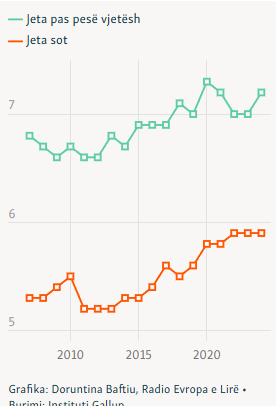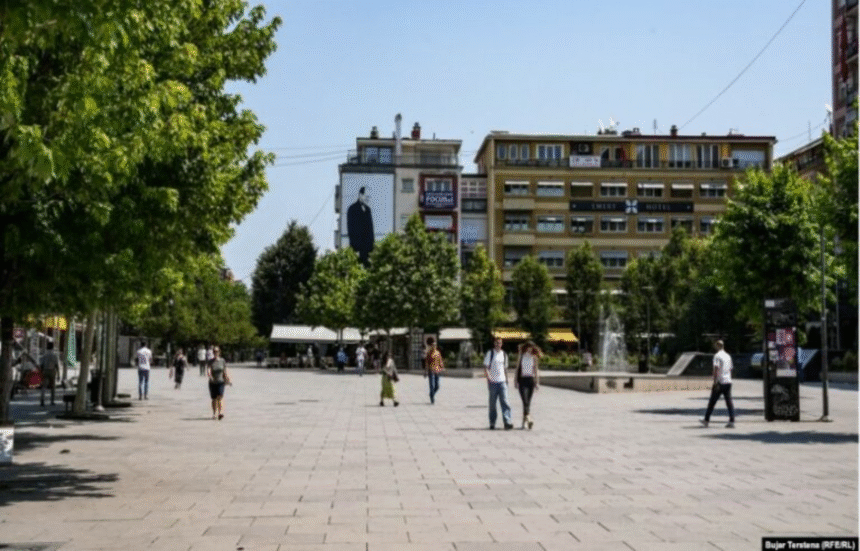Last year, more than half of Kosovo’s citizens said they believe their lives are going very well. A decade ago, only a little over 10 percent shared this view.
So, what triggered this remarkable progress—one unmatched by any other country in the world, according to the U.S.-based Gallup Research Center?
Citizens’ Perceptions of Life in Kosovo
Over the past decade, the percentage of people worldwide saying their lives are going very well has risen by 20 percentage points (or more) in just 12 countries, including some in the region such as Serbia and Bosnia and Herzegovina.
Switzerland, meanwhile, experienced a decline.
But no country saw a bigger leap than Kosovo, where the share of satisfied citizens rose from 11 percent to 51 percent.
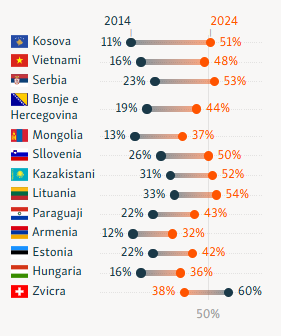
What’s Behind the Positive Trend?
According to Gallup, “understanding how people evaluate their lives is an important measure of human progress,” since other measures, such as GDP, “do not necessarily reflect whether people are living well.”
In Kosovo, optimism is driven by improved living standards, stronger personal freedoms, and a brighter outlook for children’s futures.
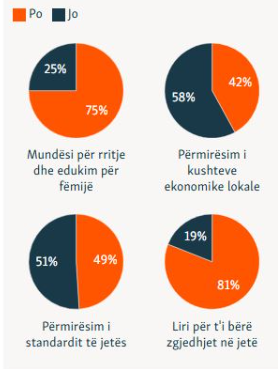
Respondents also reported fewer health problems, fewer days of illness, lower levels of stress, sadness, and anger—and greater happiness, satisfaction, engagement, and respect.
Global Trend
Globally, the number of people who rate their lives positively is increasing, while those who feel they are suffering is decreasing.
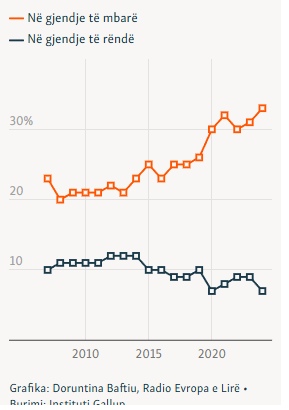
The improvements are seen across age groups and genders, though not equally across all regions.
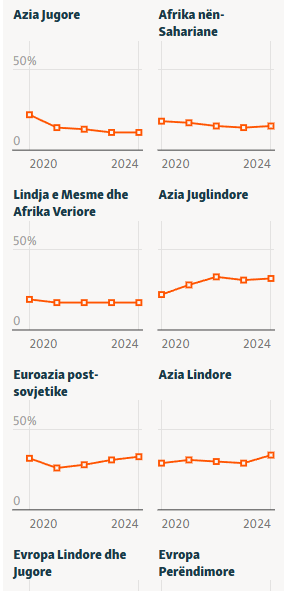
Gallup’s method is straightforward: people are asked to imagine a scale from 0 to 10, where 10 represents the best possible life and 0 the worst. Where would they place themselves today? And in five years?
Scores of 0–4 are categorized as “suffering,” 4–7 as “struggling,” and above 7 as “thriving.”
For last year, the global average score was 5.9, with expectations for the future climbing to 7.2.
